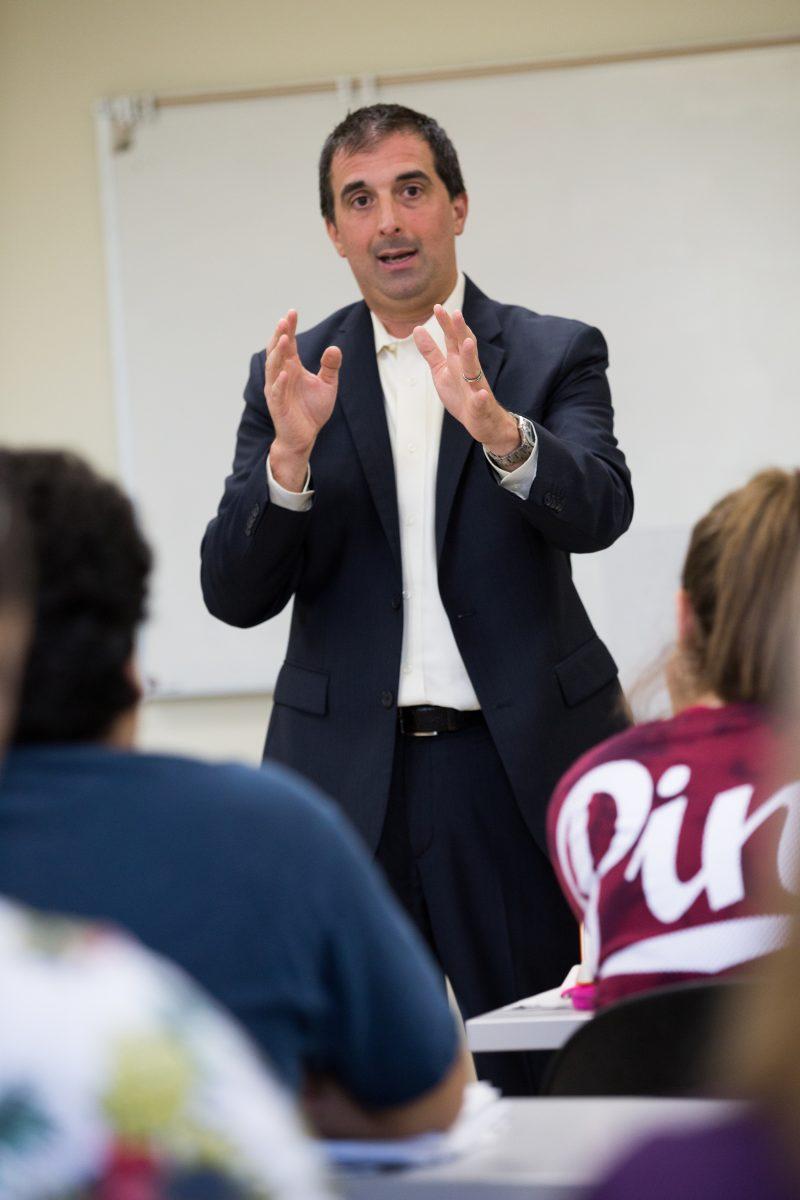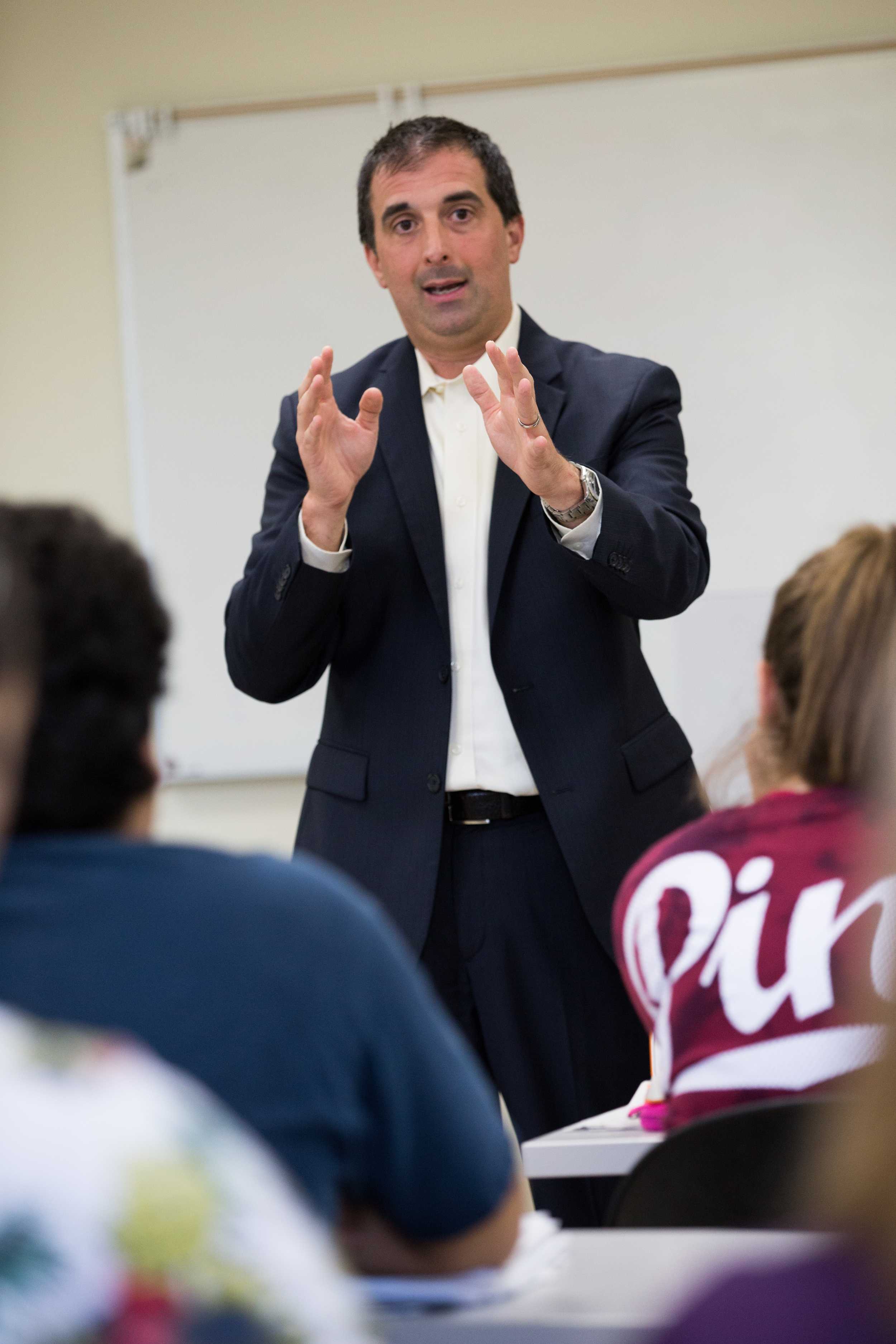Robert Eyler is the Interim Dean of Sonoma State University’s International and Extended Education, as well as a professor of economics. A Sonoma County local, Eyler went to Piner High School in Santa Rosa, attended Chico State as an undergraduate and continued his education through UC Davis. The STAR held a Q&A session on Tuesday with Sonoma State’s own macroeconomist.
STAR: What does being the dean of international and extended education entail?
Eyler: There are four units that I govern. One is what you do during intersession. On top of that is our special session degrees. Part two is the certificate program. We provide continuing education in mostly health care and human resources training. Unit three is international: anyone who studies abroad or comes in from study abroad, or if someone comes in for only a semester- or if you are coming in for extensive English language training which is SALI. Last, we have Lifelong Learning during summer for kids 9-13, and our OSHER institute for kids 15 and over. Those are programs that are not graded but more entertainment plus curriculum that I teach in the spring.
STAR: Why is there no financial aid for intersession?
Eyler: The way the education code is written, we cannot have financial aid resources going towards market-driven price education. It has to go towards the so-called ‘state side’. The question has two sides: One, it’s illegal; we can’t have an Extended Ed course have financial aid applied to it. There is a separation on campus on what the state helps pay for, and what it doesn’t. I actually run he only unit in the academic side of the house that gets zero money from the state. So, taxpayers don’t pay me a dime to run that program, we get it all through revenue generated from our programs. Problem with that? We can’t apply financial aid to it. There have been a lot of philosophical arguments about promoting summer and intersession courses to have students finish degrees faster, that if you have a financial need, we can’t easily respond to that. How we have responded to that, partially, is we have put aside scholarship money. It’s mainly for the degree programs and not for summer and intersession.
STAR: If students take units over summer, does that money go to the department of which the student is under of the School of Extended Education?
Eyler: It comes to us, and then we would redistribute some of that towards [the appropriate department] . But the department itself will not get that; the professor that teaches that will get paid based on the attendance- that is our financial model.
STAR: How is the job market looking for recent and upcoming graduates?
Eyler: A macroeconomist looks at the economy is in three ways: financial markets, good markets, labor markets. Labor market wise, we are seeing decent job growth, the last couple of months have been a bit of a wiggle because we are having global economy issues; specifically China and Europe. Which is starting to slow down the demand for American goods or at least the forecast of the demands, which is slowing down hiring. Not stopping hiring, just slowing down the pace of it. What that does is bleeds into goods markets; income is made from working generate the demand for goods and services, as labor markets slow down, so do goods markets. Now, financial markets are before that- usually we see stock markets and interest rates move. That changes the cost of doing business which changes the labor markets and that changes the demands for goods and services. That is the way macroeconomics works. Since 2010 we have been on a slow-steady upswing in all three of those markets and we are starting to see a slowdown in the growth pattern in all three in the past 7 or 8 months. Right now the forecast is decent, it is getting less decent as we are getting worsening news out of Asia, but we will see how the next six months go.
STAR: What about California’s recession?
Eyler: Still true, there has been a dichotomy in California since 2007 in the sense that the I-5 corridor, the valleys, have been hurt more by the recession and have not fully recovered since 2008 as we have on the coastline. Our recession here in Sonoma County ended probably early 2011, in Marin County and San Francisco ended in 2010, in places like Chico, Redding, Yuba City, Stockton, Fresno, going back down I-5 towards LA basin, the recession still has many elements in play. So it has remained relatively dichotomized because the growth in the major urban areas have not rippled out as it has done in the past decades, toward the valleys, yet. In some parts it has, just not everywhere. There are some good public service jobs, but those jobs are really the key jobs (outside of retail) in less-populated areas. In populated areas there are still jobs in everything under the sun in California.




































